Editor’s Note: As of press time, all the information in this story was accurate. But, as we know, things with COVID-19 can change rapidly. Please be sure to check directly with the camps concerning cancellation and refund policies or any changes to programming prior to registering.
With the current temps it seems unnatural to even think about summer camp signup. But, not unlike holiday decorations popping up months in advance, the camp chatter starts earlier and earlier each year. Some camps began registrations already and while you’re not too late to the game, it’s definitely time to start doing your research. From a focus on films to learning new sports, read on to find a few picks for camps to sign up for now.
Morton Arboretum
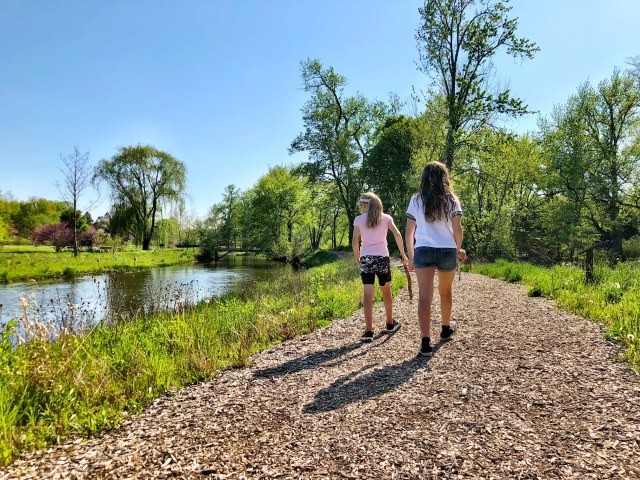
Kids get totally immersed in nature and outdoor adventures with more than 100 camps planned among 1,700 acres of trees. The Arboretum's woodlands, ponds and prairie become one big classroom where campers learn about the natural world through science experiments, STEM, art and creative play.
Dates: Week-long camps, Jun. 6-Aug. 12
Ages: Grades Pre-K-8
4100 IL Rte. 53, Lisle
Online: mortonarb.org
In the meantime: Stay connected with the Arboretum with their robust youth and family programming or visit the grounds to see the Human + Nature exhibit.
Avid4 Adventure

Avid4 Adventure is new to Chicago, but they've been hosting camps in Colorado and California for years that focus on building confidence, decision-making skills and cultivating a sense of adventure in the outdoors.
Their two-week Adventure Camp takes kids in grades 2-7 to local settings for thrilling outdoor experiences like mountain biking, hiking, canoeing and kayaking, or SUP. When younger kids first attend camp, the focus is on getting comfortable with new activities. As they get older, the attention is shifted to teamwork and deepening technical competence.
SUP Camp allows kids to get out on the water where they can experience the fun of paddling while developing balance. Trained instructors teach campers basic strokes, rescue techniques and water safety.
Explorer Camp gets kids in grades K-1 outside hiking, paddling, learning solid biking skills and engaging in creative pursuits like yoga, art and music.
Dates: Adventure & Explorer Camps; (4) 2-week sessions, Jun. 6-Aug. 5; SUP Camp, (5) 1-week sessions
Ages: Grades K-7
Christ Church of Lake Forest, 100 N. Waukegan Rd., Lake Forest
Online: avid4.com
Hi-Five Sports Camp
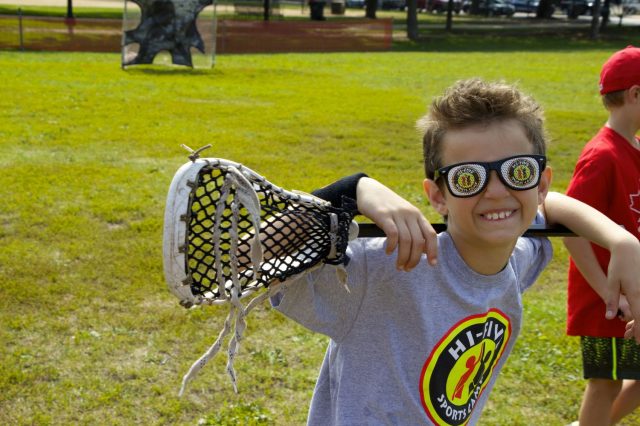
Top priority for this camp that's a dream come true for active kids is FUN! It's a total bonus the programming keeps your child active, healthy, smiling—and perhaps ready for early bedtimes from happy exhaustion. Hi-Five Sports Camp Chicago is about so much more than winning or losing, it's about teamwork, playing hard and fair, making new friends and learning the power of camaraderie. The staff is filled with professional coaches, high school and college athletes, as well as experienced P.E. teachers who are ready to guide kids through a positive, self-esteem building experience.
Dates: West Loop camps running Jun. 20-Aug. 12
Ages: Grades Pre-K-9
City-based camps hosted at either Chicago Hope Field/Quest Multisport or Whitney Young Magnet HS. Locations also in Naperville, Northbrook, St. Charles, & Mt. Prospect
Online: hifivesportsclubschicago.com
In the meantime: Schedule a Hi-Five "Housecall". You gather 3-10 kids for 1-2 hours at a location of your choosing, and Hi-Five handles the planning and supplies the equipment. Also, check their website for day-off camps throughout the school year.
FAME Center
FAME Center Fine Arts Summer Camp offers two-week sessions of full-day, in-person camp. Each session explores a different theme culminating in a special celebration on the final Friday. Campers participate in 4, one-hour music, visual art or theater classes facilitated by FAME Center teaching staff. On Fridays, kids are treated to a Fine Arts Masterclass with local Chicago artists. Alongside fine arts classes, campers fill the rest of their days with fun, creative group activities, playing games and spending time outdoors.
Dates: (3) 2-week sessions, Jun. 20-Aug. 5
Ages: 6-12
Willow Creek Community Church, 1347 S. State St., Dearborn Park
Online: famecenter.org
Chicago Botanic Garden
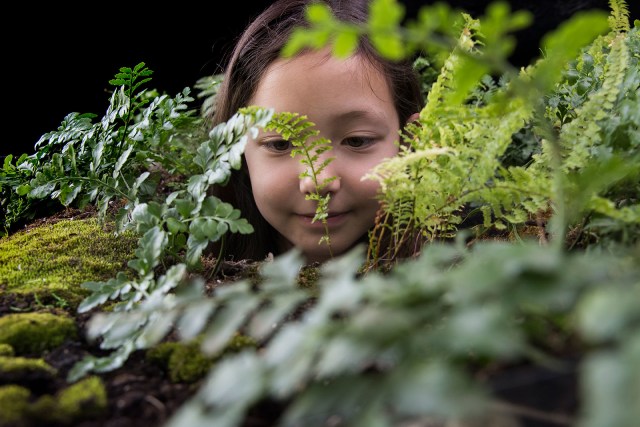
No way kids will suffer from summer break boredom at Chicago Botanic's camp. They'll be one with nature exploring a range of themes including science, nature, art, ecology and cooking. Each day offers a different adventure.
Dates: Week-long, half- & full-day camps running Jun. 6-Aug. 12
Ages: Grades Pre-K-10
1000 Lake Cook Rd., Glencoe
Online: chicagobotanic.org
In the meantime: The Chicago Botanic garden grounds are open for Chicagoans to enjoy. Please register for a timeslot prior to visiting. Check their website for day-off camps throughout the year.
Camp Galileo
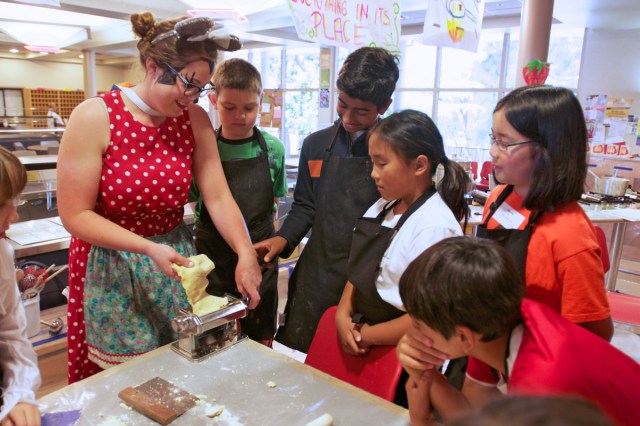
This camp is really the perfect combination of learning and fun with weekly themes like Dinosaur Dig, Amusement Park Adventure, Castle Quest and Counselor in Training. Camp Galileo presents art, science and outdoor activities on a daily basis. They can provide before and aftercare if you need to extend the day.
Dates: Jun. 20- Aug. 12 (dates vary by location)
Ages: Grades Pre-K-10 (grades vary by location)
Camps offered in West Loop, Lincoln Park, Wicker Park, Lincoln Square, Evanston, LaGrange, Winnetka, Deerfield & Arlington Heights
Online: galileo-camps.com
The Kids' Table
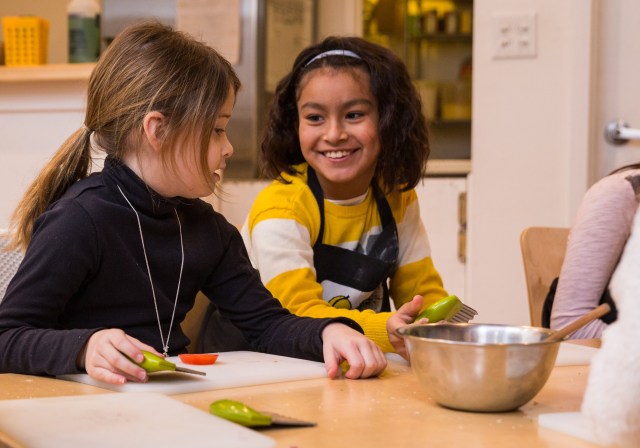
The Kids' Table offers hands-on cooking fun all summer! Guided by chef instructors, kids get to chop, grate and roll their way to different delicious dishes each day. Registration is all week-by-week, so kids can join for as many weeks as they'd like. Best of all, these camps will inspire your kiddo to play a more active role in the kitchen (even cleanup!).
Dates: Camps running Jun. 6-Sept. 2
Ages: Full-day, ages 5-10; Half-day, ages 11-14
2337 W. North Ave., Wicker Park
Online: kids-table.com
In the meantime: Take a family cooking class or drop kids off for an in-person cooking class. Live virtual cooking classes are available for kids ages 2-14 or access on-demand content. Kids' Table will also be offering a summer camp in a virtual format. Dates and times are TBD.
Game On Sports Camp for Girls (& Boys, Too!)
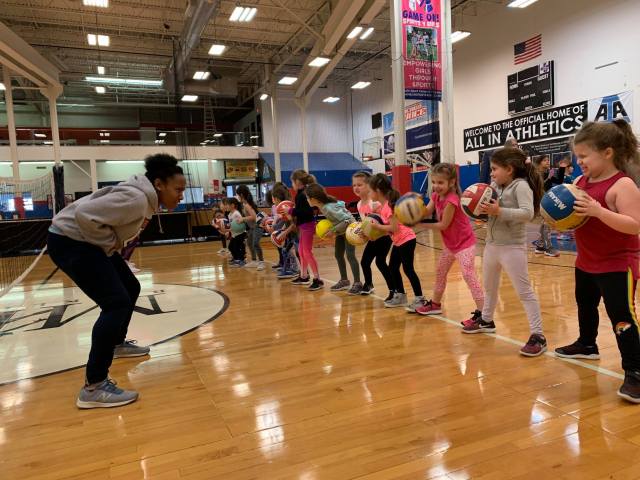
Where “playing like a girl” is a form of praise, this specialized camp is focused on empowering girls in a positive and spirited environment. This camp is well-known amongst parents as being a confidence booster for daughters and is a great way to introduce new sports in fun and exciting ways. They offer basketball, softball, soccer, tennis, volleyball and lacrosse, just to name a few.
Game on Sports Camp is also launching a sports camp for boys this summer in Glencoe. They believe adding programming for boys allows them to make an impact on all kids to ensure they show respect for each other on and off the field and empower all to speak up and stand up for themselves.
Dates: Week-long camps, Jun. 13-Aug. 12
Ages: Grades Pre-K-8th
Locations in Chicago, Evanston & Glencoe
Online: gameonsportscamp.com
Camp Naper

Located at Naper Settlement, a 12-acre living history museum in Naperville, Camp Naper offers kids the opportunity to explore, create and imagine. Each week offers a different theme and adventure to embark on.
Dates: Camps running Jun. 6-Aug. 3
Ages: Grades 1-8
523 S. Webster St., Naperville
Online: napersettlement.com
Steve & Kate Camp
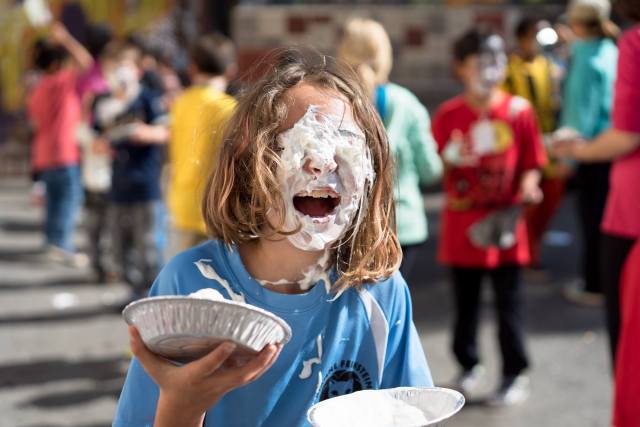
Steve & Kate Camp is perfect for the camper that needs a flexible schedule, pick a day, a week or a month. S&K really lets kids just be kids. Your camper can sing, bake, sew, make a movie, dance or even code their own computer game in one of the several studios scattered throughout. Want to get outside? Jump in on a constant game of hockey, basketball or soccer likely happening all day long. Need some fuel? They provide daily lunch options from a variety of local restaurants and caterers. Sounds amazing — can parents sign up?
Dates: Weeklong camps, Jun. 20-Aug. 19
Ages: 4-12
Locations in Lincoln Park, Lakeview & West Loop
Online: steveandkatescamp.com
Bubbles Academy
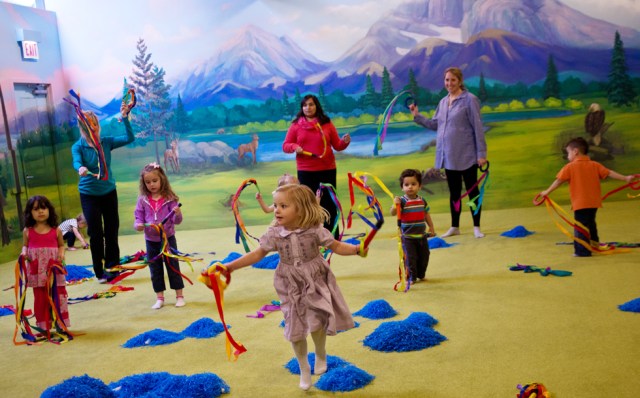
Bubbles Academy's has a year-round preschool program that offers a summer semester for kids ages 2.5-5. The best thing about this arts-integrated preschool format is its flexibility—you can choose to send your child 2, 3 or 5 days a week. Bubbles Academy’s educational philosophy of arts-integration combines content and skills taken from arts practices including dance, music, theatre and visual arts, with developmentally appropriate, early childhood learning standards and socio-emotional skills.
They will also host an in-person STEAM-focused summer camp for kids going into grades 1-2. Campers will run, play, create and get messy while they explore the interdisciplinary magic in science, tech, engineering, art and math.
Dates: Jun. 7-Aug. 27 (for camps & pre-school)
Ages: 2.5-5 for preschool; Grades 1-2 for summer camp
2184 N. Elston, Bucktown
Online: bubblesacademy.com
In the meantime: Access Bubbles Academy's on-demand virtual classes or sign up for in-person classes.
Banner Day Camp
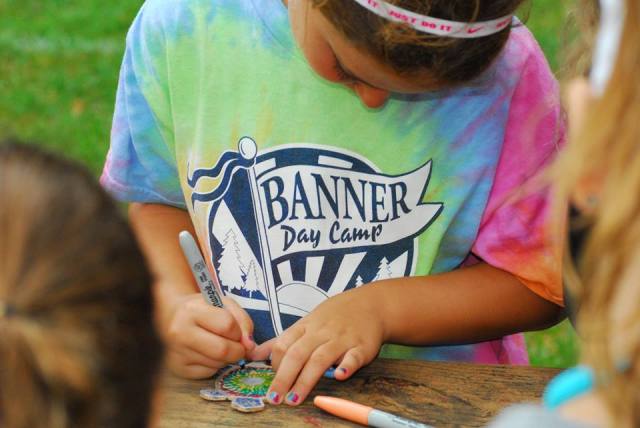
Much like the kind of summer camps you see in the movies, Banner has it all. There’s a 3 to 1 camper to counselor ratio, which gives your little ones access to extra special attention while participating in all the activities they could ever ask for. Banner offers swimming, yoga, a climbing wall, arts, fishing, archery, dune buggies. . . you name it, they have it. While Banner Day Camp is in Lake Forest, they do offer supervised round trip bus service for city dwellers.
Dates: 8-Week Session, Jun. 20-Aug. 12; Session 1, Jun. 21-Jul. 15; Session 2, Jul. 18-Aug. 12
Ages: PreK-9th Grade
1225 Riverwoods Rd., Lake Forest
Online: bannerdaycamp.com
First Ascent Climbing & Fitness
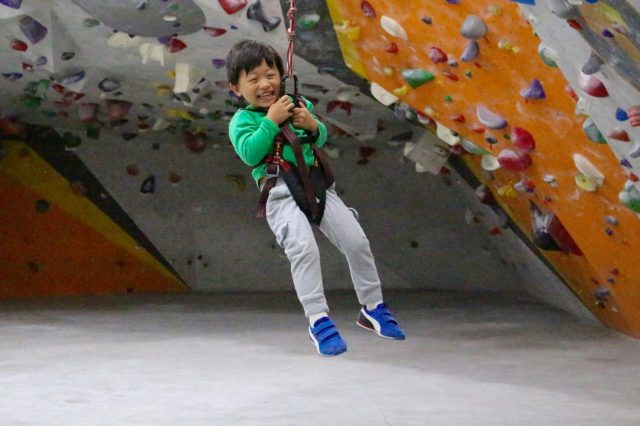
Kids will have an unforgettable experience climbing, rappelling, slacklining, ziplining, conducting search and rescue and exercising their creativity with arts and crafts. Each day of the week-long program offers a new fun theme. Summer camp registration is 20% off through Mar. 31.
Dates: Week-long camps, Jun. 20-Aug. 12
Ages: 7-14
3516 N. Spalding Ave., Avondale
Online: faclimbing.com
Lincoln Park Zoo
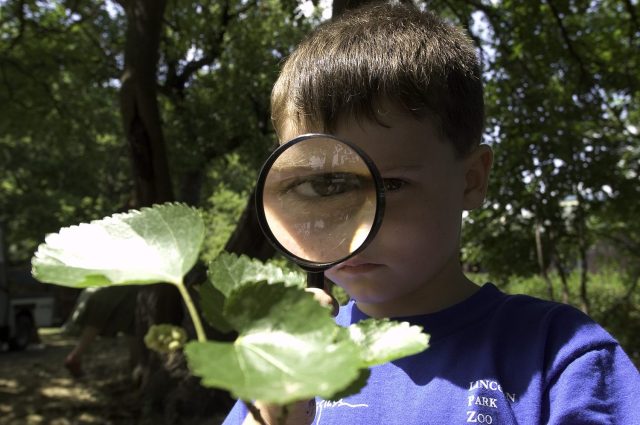
During Conservation Camp, Lincoln Park Zoo educators will lead campers through a variety of activities that explore the fun and fascinating world of animals. Each day, campers will participate in movement activities, games, and crafts. They will get to see animals at the zoo and meet zoo scientists doing important conservation work.
Dates: Week-long camps, Jun. 21-Aug. 27 (currently a waitlist)
Ages: Grades pre-K-4
2001 N. Clark St., Lincoln Park
Online: lpzoo.org
In the meantime: Visit the zoo anytime in person!
Facets
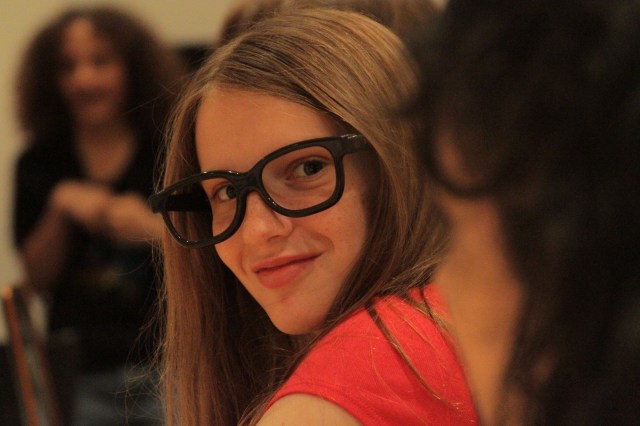
Don’t let the venue fool you, this camp is much more than sitting around watching movies all day. Campers will get an intro into the art of film with a mix of offerings like editing, animation, intro to filmmaking and camper-favorite Film 101, which combines film criticism with basic filmmaking skills. They have both in-person and virtual camps and have expanded their offerings to include a broader range of ages.
Dates: Camps running Jun. 27-Aug. 12
Ages: 8-17
1517 W. Fullerton Ave., Lincoln Park
Online: facets.org
In the meantime: Kids can stream age-appropriate film shorts via Facets Kids.
Shedd Aquarium

Shedd Aquarium is happy to welcome kids to Camp Shedd: Summer Splash, where campers enjoy five straight days of aquatic exploration. Kids will dive into various habitats and ecosystems, come eye-to-eye with incredible animals and participate in hands-on science activities that uncover some truly remarkable animal behaviors and adaptations.
Dates: Weeklong camps Jun. 20-Aug. 5
Ages: Grades K-5
1200 S. Lake Shore Dr., Museum Campus
Online: sheddaquarium.org
Shedd's Summer Road trip camp explores the wonders of the Great Lakes. Using the Aquarium as home base, campers will set out on a new adventure every day full of outdoor activities, environmental investigations and unexpected discoveries that will spark compassion, curiosity and conservation for the aquatic world. The week will end with an overnight stay at the aquarium.
Dates: Weeklong camps Jul. 11-16 & Aug. 8-13
Ages: Grades 6-8
1200 S. Lake Shore Dr., Museum Campus
Online: sheddaquarium.org
In the meantime: Keep up-to-date on the daily lives of the aquarium’s animals on Facebook, Instagram and Twitter, create learning experiences for early learners through their Sea Curious YouTube series, check out live views from the Underwater Beauty special exhibit and dive deep with 360-video views to Keep Sharks Swimming.
Lookingglass Theatre Company
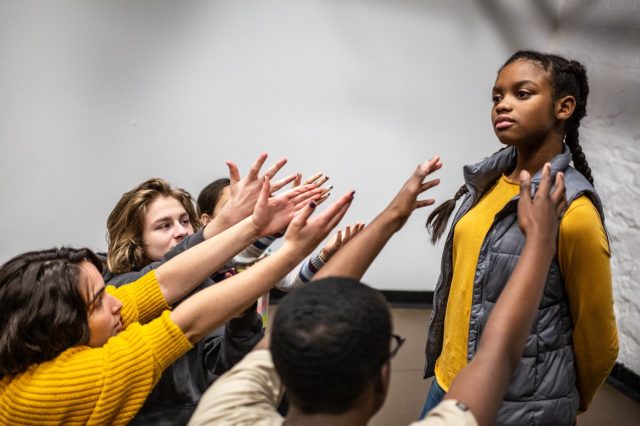
Lookingglass Theatre Company creates performance magic in a 4-week immersive experience in theatre, movement, music and art. Young artists will receive training from professionals in the core values of Lookingglass Theatre: collaboration, transformation and invention. Campers will create and perform an original piece of theatre.
Dates: Jun. 27-Jul. 22
Ages: Entering grades 3-8
Reva and David Logan Center for the Arts, 915 E. 60th St., Woodlawn
Online: lookingglasstheatre.org
In the meantime: Take a circus-infused trip down the rabbit hole with Lookingglass Alice, Apr. 30-Jul. 31. This signature production has toured the country, enchanting audiences of all ages, painted each time with a fresh coat of magic.
Chicago Fire
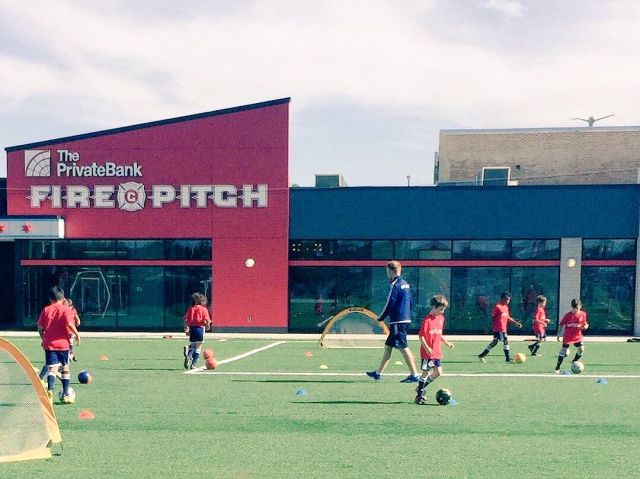
The Chicago Fire Soccer Club hosts summer camps at various Chicagoland locations, making their camps convenient no matter where you live. These camps offer mini soccer fans the opportunity to learn from professional and experienced staff, regardless of their soccer ability.
Dates: Week-long camps Jun. 6-Sep. 2.
Ages: 6-14
Locations throughout Chicagoland
Online: chicagofirefc.com
Raven Theatre
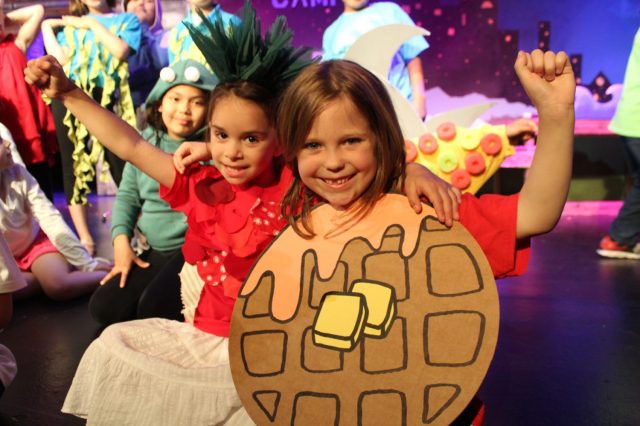
Raven Theatre's Take Flight Summer Camp features training sessions in theatre arts. This camp is great for beginners looking to learn the basics of performance or more advanced actors looking to hone their skills. Raven's team of teaching artists will help kids feel the confidence to contribute to the artistic process and the courage to try something new.
Dates: Jul. 5-15 & Jul. 18-29
Ages: 6-14
6157 N. Clark St., Edgewater
Online: raventheatre.com
Instituto Cervantes of Chicago
Daily lesson plans are created for campers to achieve linguistic, cultural and educational goals. Children will have the unique opportunity to learn Spanish in a playful and enriching environment through total immersion of language while highlighting each student’s creativity and capacity to learn with projects, songs and activities.
Dates: Week-long camps offered Jun. 27-Sep. 2
Ages: 4-15
31 W. Ohio, Near North Side
Online: chicago.cervantes.es
Old Town School of Folk Music
The Old Town School of Folk Music’s mission is to create a summer experience where campers develop new skills, build friendships and have the freedom to explore their creativity. They’ll spend their days thinking independently, collaborating with peers and discovering their place in the arts. In-person Summer Mini-Camps have themes like percussion, characters & storytelling, dance, guitar, make believe, sketch comedy, singing and more.
Dates: Week-long camps available Jun.-Aug.
Ages: 5-12
4545 N. Lincoln Ave., Lincoln Square
Online: oldtownschool.org
In the meantime: Sign up for ongoing classes, ages 0-4 love the Wiggleworms programming. Many of their classes are now offered online, so you don't need to miss a beat with your kid's musical education.
PLANNING IN PROGRESS
Pedalheads Bike Camp
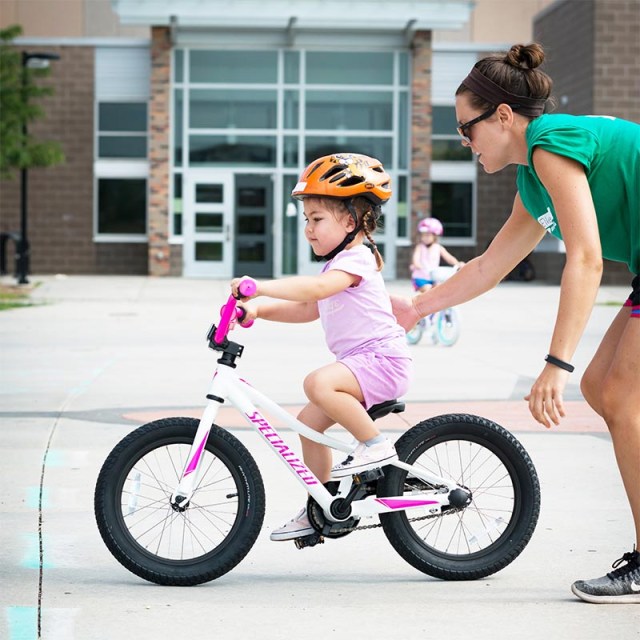
Want your kids to know the joy of bombing around on a bike all summer? Pedalheads Bike Camps can get your kids up and riding in one week! The camps are held at various locations throughout Chicago and teach your kids all the basics of balance and road rules to make sure they're riding with confidence.
Dates: Week-long camps scheduled Jul. & Aug., dates for camps & sign-ups are TBD
Ages: 2 & up
12 locations throughout Chicagoland
Online: pedalheads.com/bike/illinois
—Maria Chambers
RELATED STORIES:
Hit the Hay! Animal Farms You HAVE to Visit
Find Your Path to Summer Fun on These Chicago Bike Trails
100 Things to Do with Kids in Chicago











